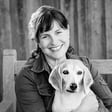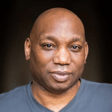
Episode 495: On Being Merciless with Peter Rubin of Longreads
"When I came in [to Longreads], I didn't come in and say, I think we need to grow aggressively. I said, 'Let's figure out who we are. Let's figure out what other people aren't doing, that we do , and that we can do better.' And so the only real thing that changed when I first came in was to try to make the editors known quantities," says Peter Rubin, head of publishing at Automattic, where he works primarily with Longreads, but also The Atavist Magazine.
Today we have Peter Rubin. He’s on the pod to talk about a lot of things, but he’s also drumming up attention for a membership drive for longreads.com, a hub of curation for the best longreads on the web, first started by Mark Armstrong. Longreads has since gone onto publish original works of criticism, journalism, and personal essays and won a National Magazine Award for best digital illustration in 2020. In conjunction with with Oregon Public Broadcasting, they produced Bundyville, the hit podcast that made Leah Sottile something of a household name (shoutout to her new season of Hush).
He spent many years at Wired Magazine and he’s also the author of Future Presence: How Virtual Reality is Changing Human Connection, Intimacy, and the Limits of Ordinary Life, which came out in 2018, but with Chat GPT going full porn for verified adult users (what could possibly go wrong?), Peter’s book seems oddly of the moment … also it’s only seven years old, but I guess in tech that’s like the stone age.
You can learn more about Peter from his very stripped down website ptrrbn.com, yeah, he hates vowels, don’t come at him with vowels, or on the gram @provenself.
In this conversation we talk about:
- Finding diamonds in the rough
- How he cultivated his editor eye
- Being merciless in the edit
- Figuring out the new identity of Longreads when he took over in 2021
- Curation
- And the Longreads membership drive
Visit longreads.com to read more and to pony up … that’s what I’m going to do, for you people who think I get handouts, just know that I’m not that savvy.
Newsletter: Rage Against the Algorithm
Show notes: brendanomeara.com



















